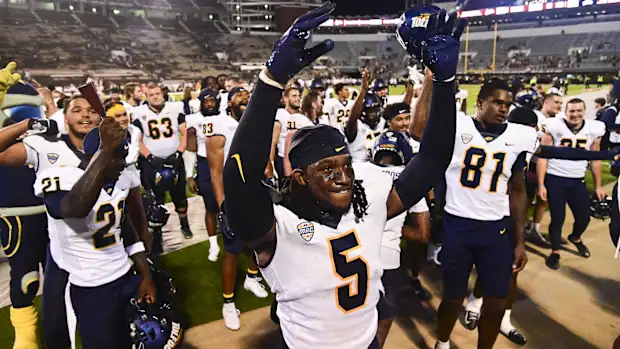Kentucky Football Faces Crossroads in 2025 Amid Fading Hype and Growing Calls for Head Coach Change
It’s no secret that as the 2025 college football season approaches, excitement around the Kentucky Wildcats football team has been notably subdued. Once a program riding waves of momentum and high expectations, the current climate reveals a fanbase grappling with frustration and uncertainty. The Wildcats enter this season without much of the national hype they enjoyed in previous years, and beneath the surface, murmurs of discontent about leadership are growing louder. Among many supporters, there is an increasing hope for a change at the head coaching position, fueled by concerns about the team’s direction and a desire to reclaim Kentucky’s competitive edge in the fiercely challenging Southeastern Conference (SEC).
Kentucky football has long been an underdog story in the SEC, a conference renowned for its football powerhouses and deeply entrenched rivalries. Over recent decades, the Wildcats have experienced cycles of promise and setbacks. The coaching staff’s role in shaping these cycles cannot be overstated, as leadership decisions have often determined whether the program surges forward or falls into periods of mediocrity. While Kentucky has made strides, especially with solid recruiting classes and occasional big upsets, sustained success has remained elusive, leaving fans restless.
Heading into 2025, the current coaching regime finds itself under a microscope. The team’s recent performances have failed to inspire the kind of confidence that breeds anticipation and fervor among fans. Instead, the narrative has shifted toward questions about coaching strategy, player development, and the overall vision guiding the Wildcats. While loyalty remains for some, patience is clearly wearing thin. The demand for tangible progress on the field is growing more urgent, and if the team fails to meet expectations this season, calls for change could crescendo into something unavoidable.
It is important to acknowledge the challenges faced by any coach at Kentucky. The SEC is a brutal proving ground where programs like Alabama, Georgia, and LSU regularly set the standard with deep rosters and consistent winning. Kentucky’s resources and recruiting appeal, while improving, still lag behind these juggernauts. Navigating this landscape requires not just talent acquisition, but the ability to foster cohesion, innovation, and resilience—traits that must be reflected in coaching decisions and team culture.
Critics argue that the current coaching staff has struggled to bring this holistic approach. Game management decisions, play-calling, and adjustments have come under scrutiny in recent seasons. Some believe the Wildcats have failed to maximize their roster’s potential, leaving close games and opportunities slipping through their fingers. This perception fuels the argument that a fresh perspective—one that can inject new energy, innovative tactics, and a winning mentality—is essential to revitalize the program.
Furthermore, recruiting—a lifeline for any collegiate football program—has shown signs of stagnation in certain areas. While Kentucky continues to bring in talent, especially in its home state and surrounding regions, skeptics question whether the coaching staff has done enough to compete for elite national prospects consistently. In the modern era, recruiting battles are won by coaches who can sell a vision, demonstrate player development success, and forge a strong culture. For many, the feeling is that Kentucky is not yet at that level, which could limit the team’s ceiling.
On the flip side, supporters of the current coaching staff point to incremental improvements and contextualize the team’s struggles within the larger SEC ecosystem. They emphasize the challenges of rebuilding, injuries, and the fierce competition as factors that explain the current lull. They also highlight moments where the team has shown flashes of brilliance, suggesting that with patience and continued effort, the program can return to prominence without drastic changes.
The fanbase is clearly divided, though the undercurrent of frustration is palpable across social media, fan forums, and local conversations. Many long-time followers recall seasons when Kentucky football seemed destined for breakthroughs, only to be left with bittersweet memories. The desire for consistent winning seasons, bowl game victories, and ultimately contention for SEC titles is not just wishful thinking—it is the standard fans expect and demand.
As the Wildcats prepare to take the field in 2025, the pressure will be intense. The season itself will be a referendum not only on the players but also on the coaching leadership. A successful campaign could silence critics and renew faith in the current regime. Conversely, a disappointing season could accelerate the momentum toward a coaching change.
In the event of a coaching change, questions immediately arise about the direction the program might take. Will Kentucky pursue a high-profile hire capable of attracting blue-chip recruits and national attention? Will the administration opt for a young, up-and-coming coach with fresh ideas and a proven ability to develop talent? Or might they promote from within, betting on continuity and familiarity to stabilize the program? Each path carries its own risks and potential rewards.
The stakes for Kentucky football are high. The SEC’s competitive balance is constantly shifting, and programs that fail to adapt risk falling further behind. Kentucky’s leadership must weigh the benefits of loyalty and stability against the pressing need for growth and results. The fans, meanwhile, await a sign—whether on the field or from the sidelines—that their Wildcats are poised for a new era of success.
In conclusion, the lack of hype surrounding the 2025 Kentucky football team is a symptom of broader concerns about the program’s trajectory. With a coaching staff under increasing scrutiny, and a fanbase growing restless, this season may be a critical juncture. The Wildcats stand at a crossroads where the outcome of games will echo beyond the final whistle, potentially shaping the future of Kentucky football for years to come. Whether through redemption or reinvention, the time for answers is now.



